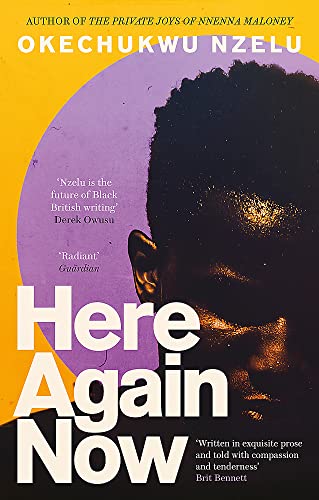What do you think?
Rate this book


304 pages, Paperback
First published March 10, 2022
‘I did some research for the part. The belief is that we get reincarnated into the same families over different generations. Old matriarchs become baby daughters again; great-grandfathers become sons. It’s not about karma and all that. Really, it’s about family. Staying close. Giving people second chances. I like that.’
Only in a corner of Achike’s mind was there any pride in himself for being a part of a project he believed in, or for bringing his father’s culture to the world; only dimly did he understand that his work on this film was a profound act of love, and that through his work he was joining a lineage of storytellers that reached back through generations, from one life to another, stretching back endlessly through time. Achike could present himself on screen as firm, bold, persistent, capable, but he was always little to himself, barely a man, only a little man. He hardly knew that he was connected to something infinite and strong.
Ekene .. knows Chibuike now. Chibuike acts gruffly, but this is the way with men. Ekene is still young – only seventeen – but he is learning. This is the way with fathers: they have tough exteriors, only because the insides of them are unbearably tender, like flesh under fingernails. Men are like this. But Ekene has never seen his father this tender. The tender parts of his father are scant, and they are bounded off and kept for women, other women, always new women. His father guards his heart’s good things watchfully with bright eyes, flaming swords. Obiajulu was never meant for children.
Does Ekene miss his father? He does not know what to say. He examines himself closely, but his feelings will not speak to him. His emotions confer amongst themselves: they are noisy and unclear. There is joy there, he knows, and relief, and a feeling of betrayal. But there are also things he does not know, and cannot read. He resents his father deeply. Ekene feels somehow suffocated by the man’s absence: he knows without knowing that he will never be able to be a child as long as his father refuses to be a man. And always there is something else. Underneath the word ‘miss’ still moves some wild, insubordinate thing that this language can never hold, some monster ready to rise up and usher in a world he cannot comprehend. There is a longing for something in the shape of a father, and for his father to take that shape. But he has never known his father to be this type of man, and therefore cannot miss him. And yet, he does.
The language of sin arises first in his mind, but its word will not fit; the act will not submit to the word. Gay. It corresponds to what he saw but underneath the word still moves some wild, insubordinate thing that this language can never hold, some monster ready to rise up and usher in a world he cannot comprehend.